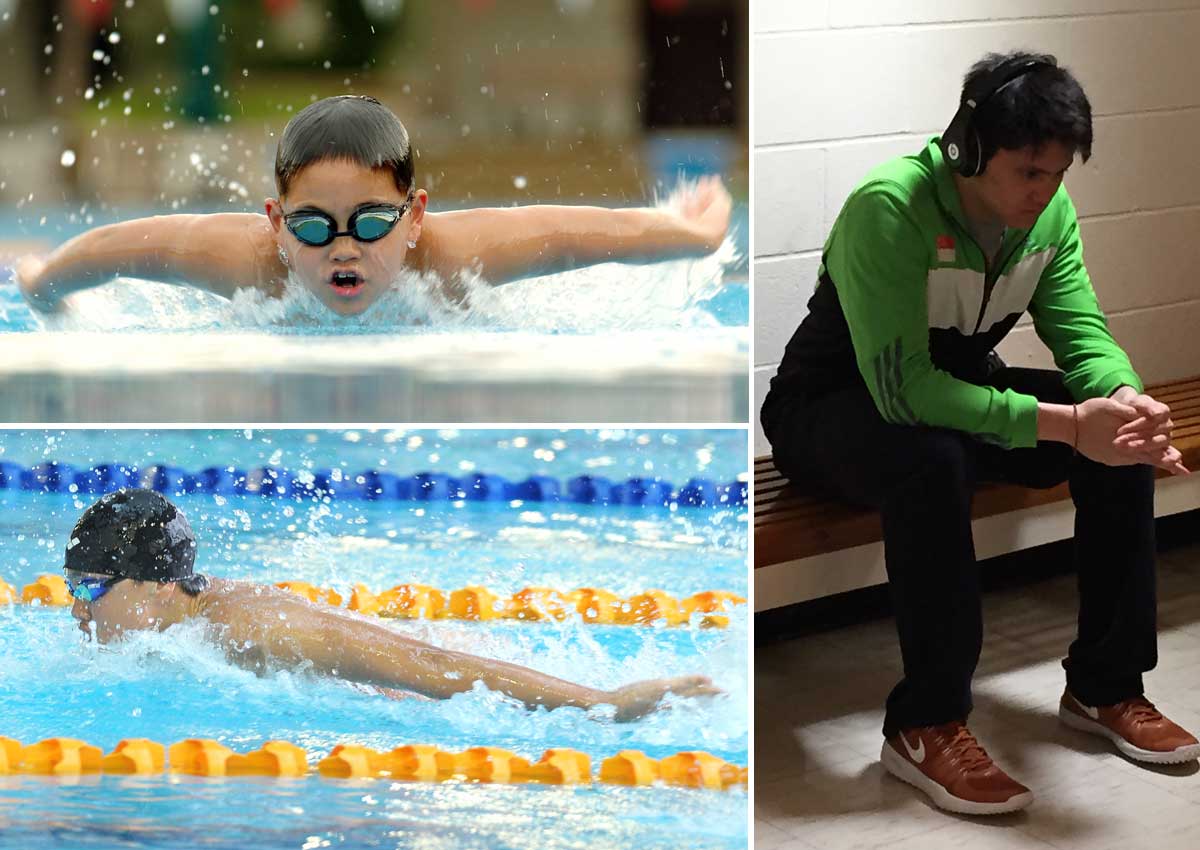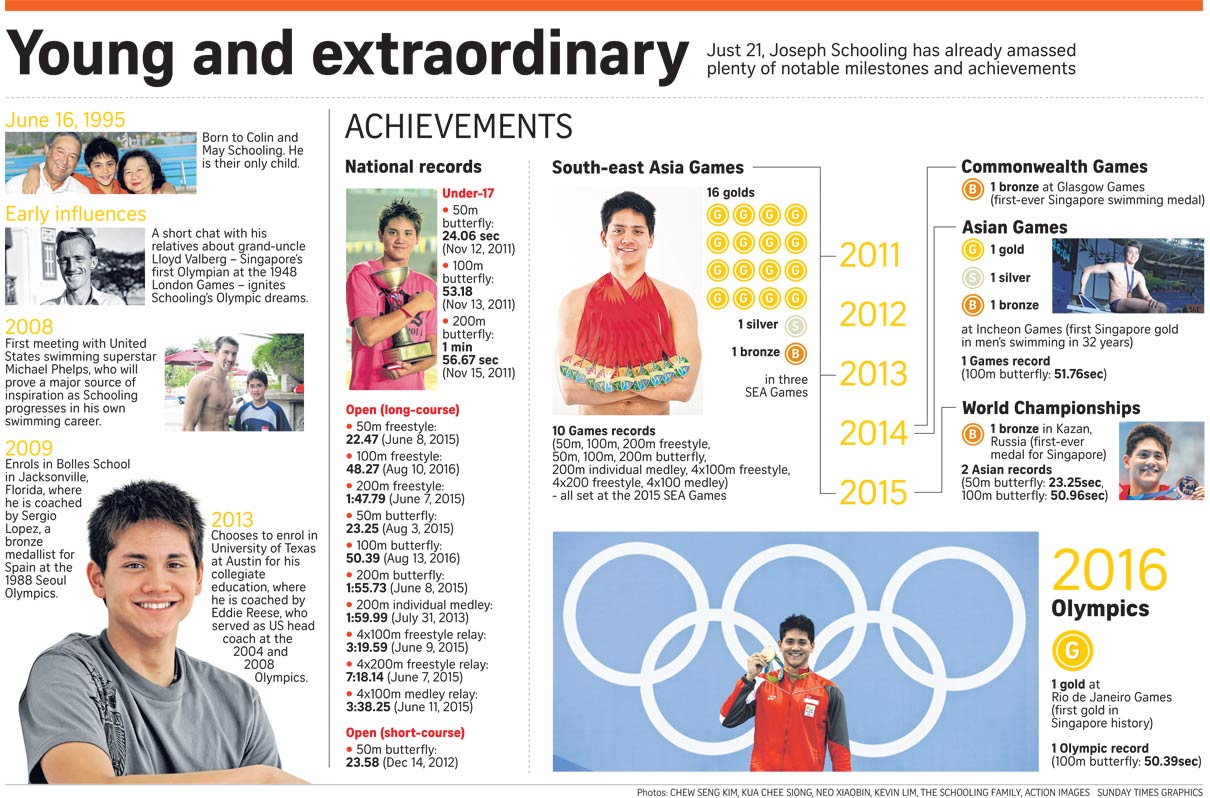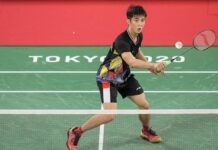In chasing his dream, the young swimmer experienced homesickness and setbacks
When he was younger and wanted to swim faster, Olympic 100m butterfly champion Joseph Schooling would imagine a shark coming after him.
In hindsight, the image is apt.
His – and his parents’ – journey to Olympic glory has been far from a smooth one in calm waters. In fact, it felt at times like danger also lurked around the corner.
While many can picture that glorious moment when he stood atop the podium, Majulah Singapura playing, not many know about the turmoil the Schoolings faced, and the pain they had to put up with, for him to succeed.
His road to Rio began during a family gathering some time in the mid-1990s, recalled his mother May, when Joseph’s grand-uncle Lloyd Valberg had a chat with him.
Valberg, a high jumper, became Singapore’s first Olympian when he took part in the 1948 Olympics.
Till this day, May and her husband Colin believe that that was when the seeds of Joseph’s Olympic dreams were sowed. “Joseph knew from a young age that he wanted to go to the Olympics, and I think it started from that conversation with his grand-uncle Lloyd,” she told The Sunday Times previously.
“But when a kid comes to you and says he wants to go to the Olympics, you think, okay,” she said, rolling her eyes.
Schooling’s natural affinity in the pool was evident from a young age. Close friend and national swimmer Teo Zhen Ren, who is a year older, recalled how, even as a nine-year-old, Joseph was always the favourite whenever he raced.
“At that time, everyone already knew about him. He was beating boys older than him in almost every stroke,” said Teo, a freestyle specialist. “I remember losing to him in a 50m freestyle race and being very upset.”
There is also the now famous story of how Joseph woke his father up in the wee hours while on holiday in Malaysia, because he wanted to go swimming. From then, Colin, a businessman, took his son’s aspirations seriously.
But he also told Joseph in no uncertain terms: “If you want to choose this lifestyle, you better be serious about it and give 100 per cent.”
But it wasn’t just Joseph who had to commit to that journey towards Olympic glory. His parents were very much part of the ride.
For them, support has meant more than just paying lip service to that dream.
“It’s important to also participate,” Colin, 68, said. “It’s not just taking them to training. So we always try to be there for his training and watching his races, we read up on the sport so we can understand what he’s going through.”
This is why Colin’s office is a vault of swimming books, filled with titles such as Championship Swim Training by Bill Sweetenham and John Atkinson, which looks at stretching a swimmer’s potential.
There are also folders meticulously filled with results from each of Joseph’s races, so they can track every single personal best and meet record that Joseph sets.
Colin even created some training aids to help his son early on. This included a drag chute, attached to a swimmer’s waist, to build strength through resistance training.
There was also a contraption with a rubber ball which was supposed to condition Joseph to tuck his chin in when he surfaces to breath.
Being supportive also meant parting with their only child in 2009, when the Singapore Swimming Association closed its Centre of Excellence (COE), a programme which brought the nation’s best talent together to train.
The Schoolings were already contemplating sending him abroad. With the COE’s closure, they decided to take the plunge and send him to the Bolles School in Florida. Even if it was part of the greater goal, the change was hard to take, with May fiercely against the decision at first.
There was also the matter of finances. Flights, accommodation, living expenses and school fees totalling more than $1 million would sap the Schooling’s finances. May practically exhausted her savings and they had to sell an overseas property to finance Joseph’s dreams.
Pointing to the pants she was wearing, May said: “We save where we can. I’ve been wearing this pants for almost 30 years.”
Joseph recalled those early years: “It was really hard, I was homesick all the time. I would call and say I want to come home. They give unconditionally and I couldn’t have two better role models to help me on my life forward. “
They decided one parent would be with Joseph at any one time. Slowly, he got used to life in the US, blossoming into a star while training alongside future Olympic champions Ryan Murphy and Caeleb Dressel, and under the world-class coaching of Sergio Lopez at the Bolles School in Florida.
Joseph seemed on track to shine at the 2012 Olympics, when he was the only swimmer to qualify for the Games on merit.
Yet, in London, he would hit the lowest point of his nascent international career. Moments before his 200m fly heats, his caps and goggles were deemed to have flouted competition rules and he had to scramble for new ones.
It rattled him and he clocked more than two seconds off his then-personal best time of 1min 56.67sec.
Teo said the incident hurt his friend. “Joseph was definitely affected by that. He had massive expectations not only from the public but also himself. He was planning to qualify for the final actually.”
Joseph sunk to what he called the “lowest point of my life”. He hated swimming, he said “nasty things” to Lopez and he was unmotivated. “Sergio should’ve given up on me but he didn’t. He stuck with me. He, my family and close friends dug me out of that hole,” he said.
Joseph clawed his way back bit by bit. At the 2013 World Championships, he set two national records and reached the 200m fly semi-final. That same year, he was granted national service deferment till the Rio Olympics.
If that put more pressure on the youngster, it rarely showed. At the 2014 Commonwealth Games, he clinched a silver in the 100m fly, Singapore’s first swimming medal at the quadrennial meet. A month later, he won three medals at the Asian Games, including Singapore’s first men’s swimming gold since 1982.
The next year saw a flawless SEA Games when he swept nine golds from nine events in front of an expectant home crowd. Any doubts about his world-class ability were erased at the World Championships last August, when he finished third with a new Asian record time of 50.96 seconds, confirming one thing – that the bigger the stage, the better he swims.
Then came the Olympics, where, as a dark horse, he was the top qualifier from the heats and the semi-finals. Yet, there was still lingering doubt just before the final.
But he remained focused on his mission, dedicated to realising his childhood dream to emerge victorious.
These days, he need not fear sharks. He is now the big fish.
siangyee@sph.com.sg

This article was first published on Aug 21, 2016.
Get a copy of The Straits Times or go to straitstimes.com for more stories.































































































































































6.jpg)




























